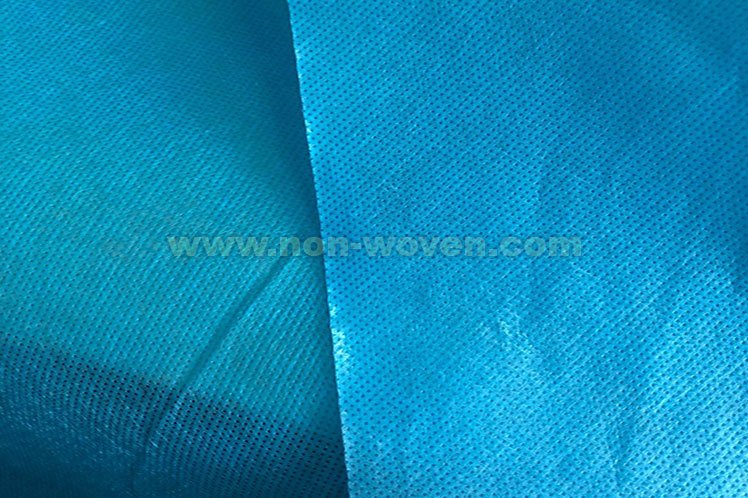Non-woven fabric is a versatile material that is utilized in a variety of industries, from healthcare to advertising. It is a fabric-like material made from short staple fibers and continuous long fibers that are bonded together through various methods such as chemical, mechanical, heat or solvent treatment. This unique process allows manufacturers to create a material that has properties that are tailored to specific applications.
In the textile manufacturing industry, non-woven fabrics are used to denote fabrics such as felt that are neither woven nor knitted. These materials are often more economical than woven fabrics and can be designed to have specific properties that make them ideal for various applications. While non-woven fabrics may lack the same strength as woven fabrics, advancements in non-woven fabric manufacturing have enabled them to become more durable and long-lasting.
Non-woven fabrics offer a wide range of properties that make them ideal for use in different products. For instance, they can be designed to have excellent absorbency, making them ideal for use in products such as baby diapers and feminine hygiene products. They can also be designed to be highly breathable, making them ideal for use in medical garments and face masks. Additionally, non-woven fabrics can be designed to be incredibly soft, making them ideal for use in products such as wipes and diapers.
Furthermore, non-woven fabrics can be designed to be highly effective at filtering out particles, making them ideal for use in products such as air filters and water filtration systems. They can also be designed to be highly elastic, making them ideal for use in products such as disposable underwear and surgical gowns. Non-woven fabrics can even be designed to have excellent barrier non woven fabric properties, making them ideal for use in products such as medical gowns and drapes.
In this article, we will delve into the non woven fabric properties. We will discuss absorbency, air permeability, durability, softness, filtration, elasticity, barrier properties, resistance to chemicals, biodegradability, and printability.learn more(wikipedia)
Absorbency
Non-woven fabrics can be designed to be highly absorbent, making them ideal for use in products such as baby diapers and feminine hygiene products.
Air Permeability
Non-woven fabrics can be designed to be highly breathable, making them ideal for use in products such as medical garments and face masks.
Durability
While non-woven fabrics may lack the same strength as woven fabrics, they can be designed to be highly durable and long-lasting.
Softness
Non-woven fabrics can be designed to be incredibly soft, making them ideal for use in products such as wipes and diapers.
Filtration
Non-woven fabrics can be designed to be highly effective at filtering out particles, making them ideal for use in products such as air filters and water filtration systems.
Elasticity
Non-woven fabrics can be designed to be highly elastic, making them ideal for use in products such as disposable underwear and surgical gowns.
Barrier Properties
Non-woven fabrics can be designed to have excellent barrier properties, making them ideal for use in products such as medical gowns and drapes.
Resistance to Chemicals
Non-woven fabrics can be designed to be highly resistant to chemicals, making them ideal for use in products such as protective clothing for workers in chemical plants.
Biodegradability
As more and more companies are looking for sustainable and eco-friendly alternatives to traditional materials, non-woven fabrics are increasingly being designed to be biodegradable and compostable.
Easy to Print
Non-woven fabrics can be designed to be easily printable, making them ideal for use in products such as advertising banners and custom tote bags.
In summary, non-woven fabrics can be customized to have specific properties depending on the intended application. Whether you need a highly absorbent material for baby diapers or a durable material for surgical gowns, non-woven fabrics can meet your needs. So, if you’re looking for an economical and versatile material, consider non-woven fabrics!
Contact us today to learn more about how non-woven fabrics can benefit your business!

